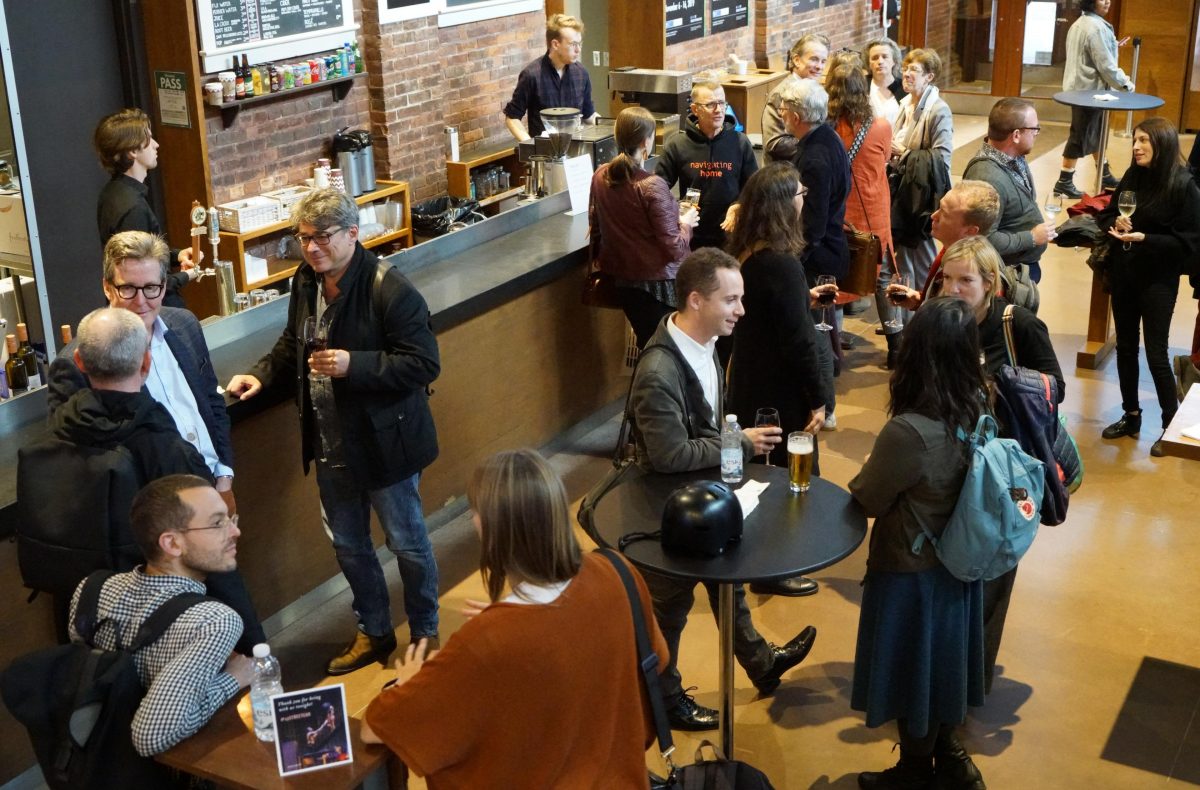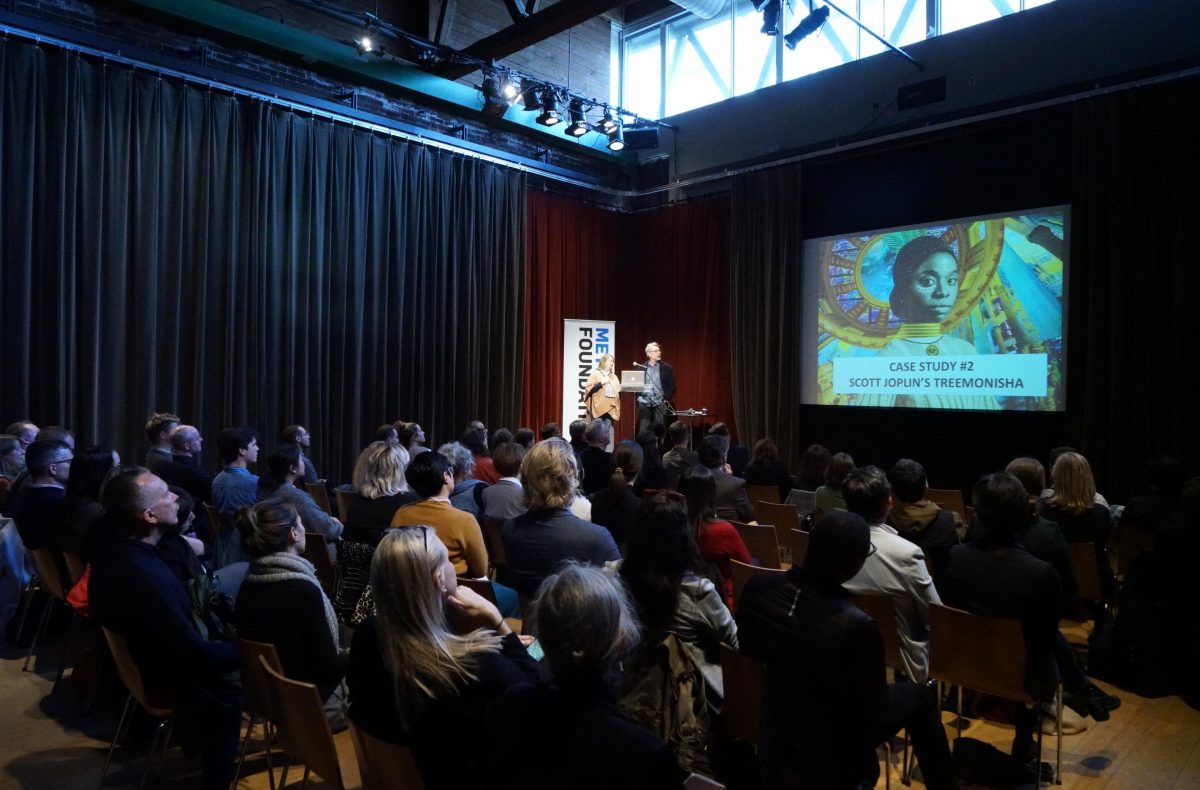Members of Toronto’s performing arts community gathered on Monday, October 21 at the Young Centre for the Performing Arts to learn about the outcomes of the 2016 CrSI cohort’s three-year initiatives. Leaders from Art of Time Ensemble, The Musical Stage Company, Native Earth Performing Arts, Public Recordings, Toronto Dance Theatre, and Volcano shared how they individually and collectively ‘unlocked artistic potential’ and identified the key learning that emerged from their work.
Drawing on her own experience, Metcalf Intern Alicia Richins delivered the land acknowledgment.
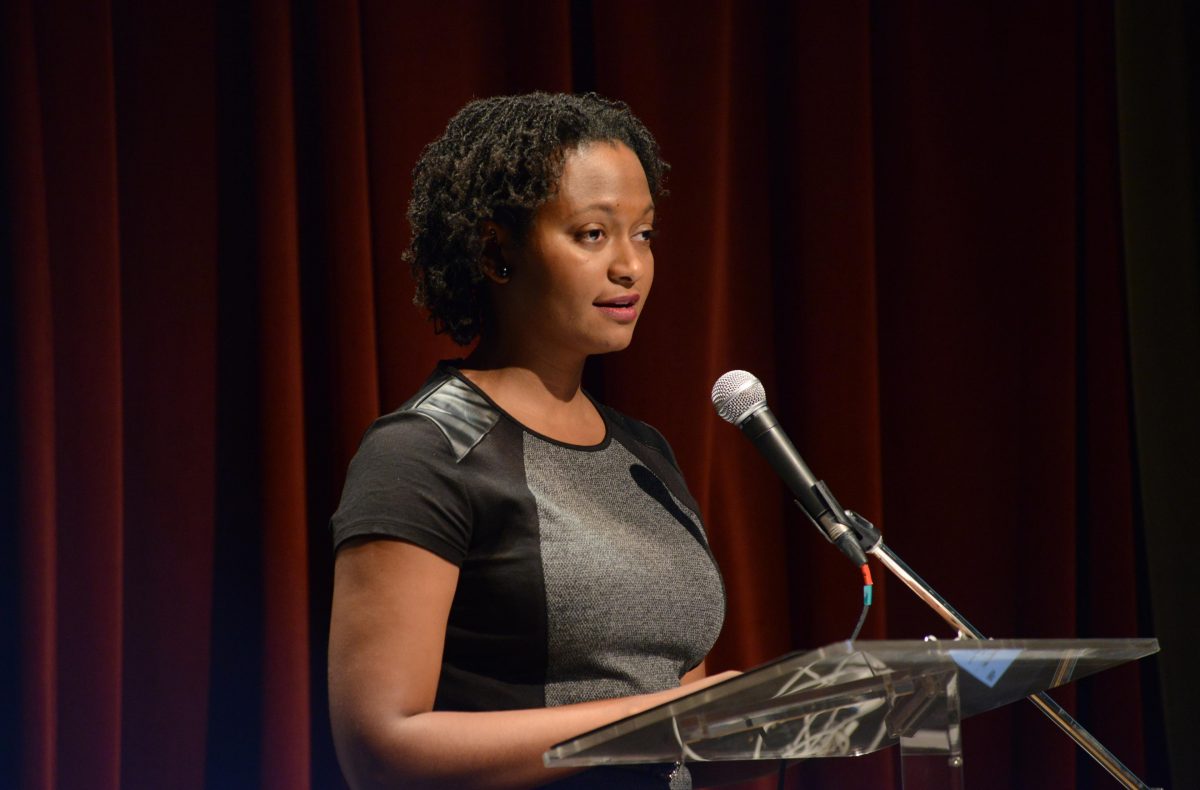
Metcalf President and CEO Sandy Houston welcomed everyone and offered a series of questions for the attendees to consider around the three key themes that emerged from the cohort’s work over the past three years. Around artistic practice, he asked: What do we let go of when we don’t have the needed resources? And how can we leverage resources internally in the arts ecosystem in order to enable more R&D? Concerning systemic barriers, he wondered: When funding the development of artistic work, do funders value quality or quantity? And what’s our relationship to artistic legacy and the revisiting of past work? And finally, around market relationships, he pointedly asked: What are the ways in which we build relationships, become visible, and create the conditions for new work to have a life beyond a local premiere?
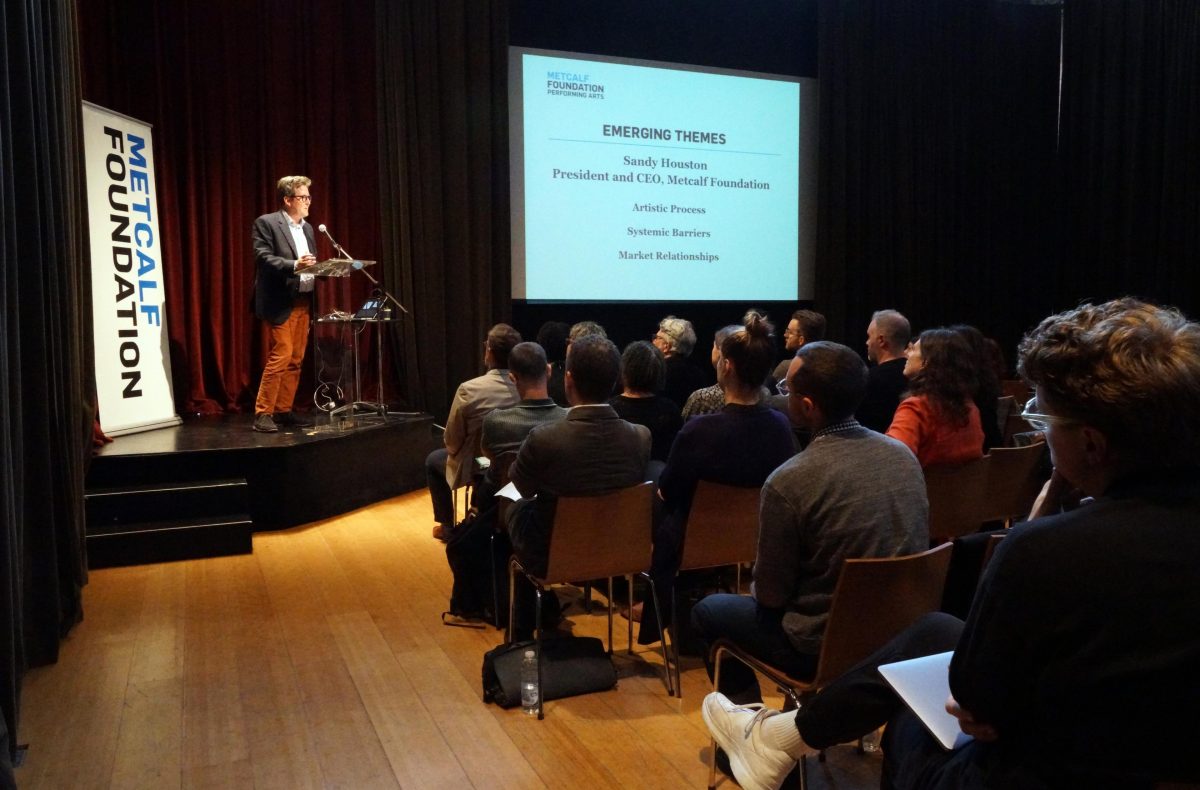
The Musical Stage Company’s Artistic and Managing Director Mitchell Marcus noted that there exists “a huge moment of potential for our organization in regards to original Canadian musicals.” However, the high cost of producing musicals and the low royalty return for the multiple-member creative team makes it very difficult to create original new musicals in Canada. The company looked to the US and found some inspiring solutions including developing collaborative producing relationships with US regional theatres; exploring the model of “commercial enhancement” within Canada; and capitalizing on funding opportunities for the development of new musicals within the US.
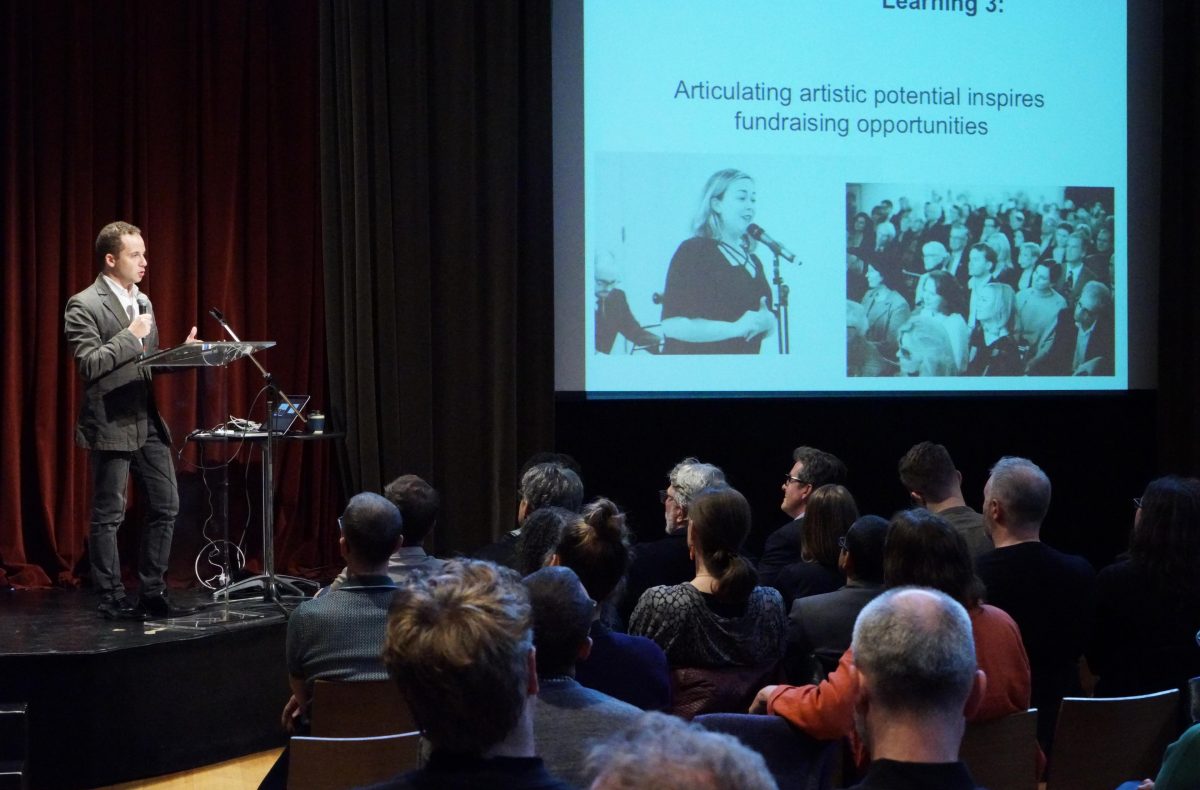
Native Earth’s Managing Director Isaac Thomas and Artistic Director Keith Barker unlocked artistic potential by launching the Mskomini Giizis summer residency, taking full advantage of their black box theatre, the Aki Studio, they offered emerging and mid-career Indigenous artists and collectives the opportunity to further their projects either beyond mid to late stage workshop development or after first productions. Being able to adapt emerged as the most potent learning: to a rapidly changing ecology, a new set of expectations for producing partners to program Indigenous work, and a renewed attention on Native Earth’s curatorial priorities.
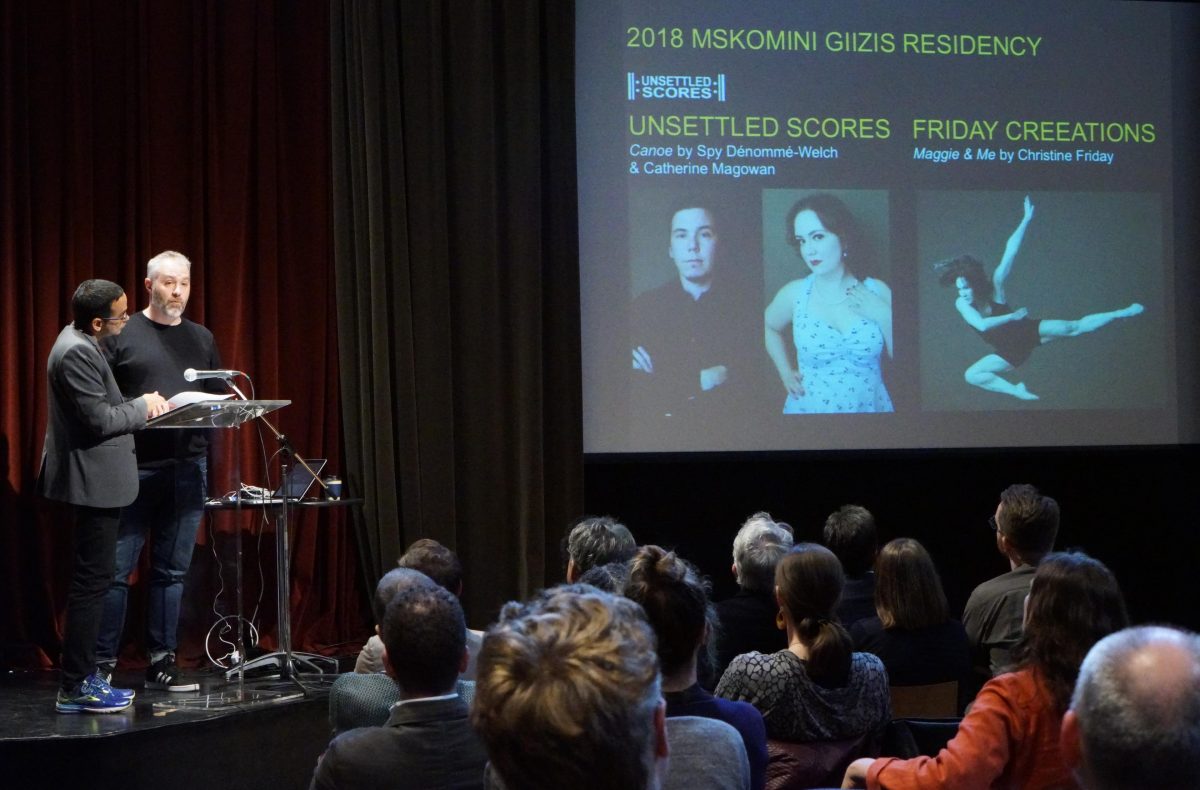
Associate Artists Evan Webber and Christopher Willes began by explaining how Public Recordings was founded as a dance company with an interdisciplinary focus. Since then, it has morphed into a collective that has eschewed formal power structures by creating a team of Associate Artists. To unleash their artistic potential, they sought to clarify their organizational structures. In the process, they discovered that despite a “tyranny of structurelessness,” structure must be made explicit in order to address fundamental issues of labour, ownership, and agency.
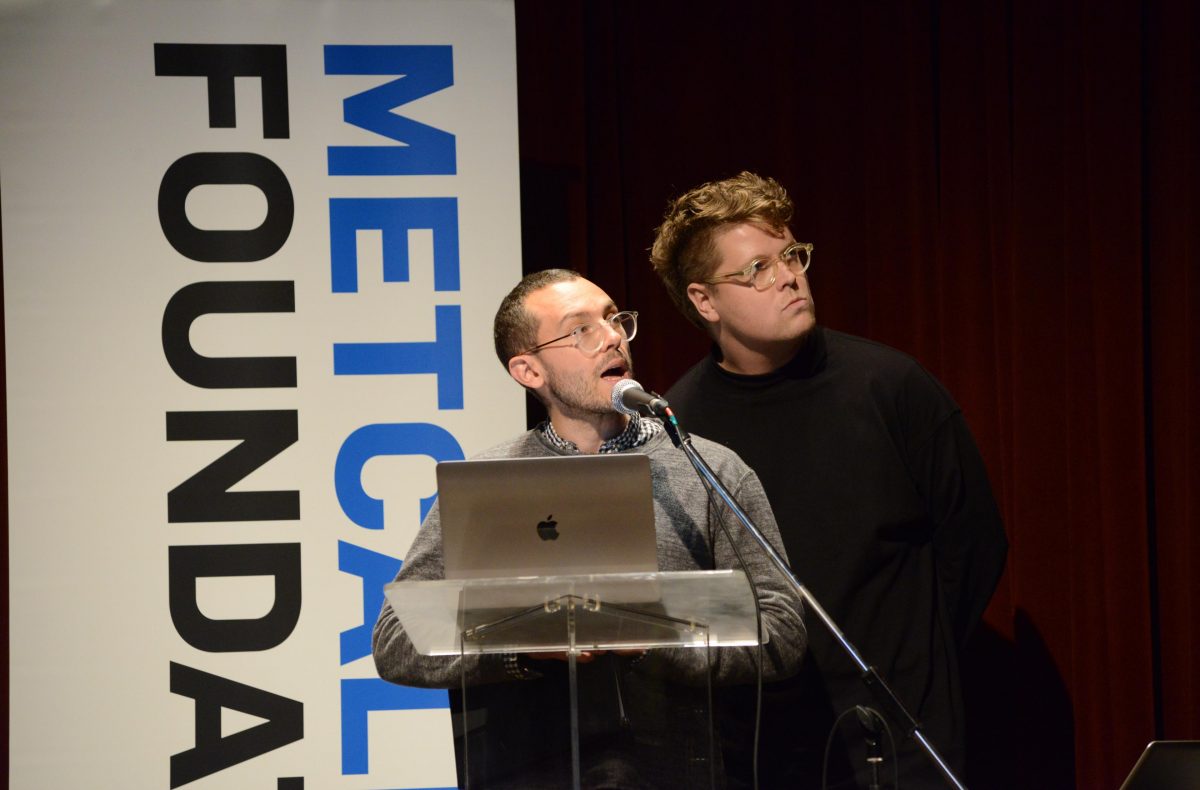
Art of Time Ensemble Founder and Artistic Director Andrew Burashko outlined that his company began with the objective of building a larger audience for classical music. Their CrSI funded initiative focused on fours elements: improving the quality of the work by increasing production support and investing in untested ideas; increasing the scale of the work through a more ambitious workshop process; building relationships in order to increase reach; and growing the company’s human resource complement.
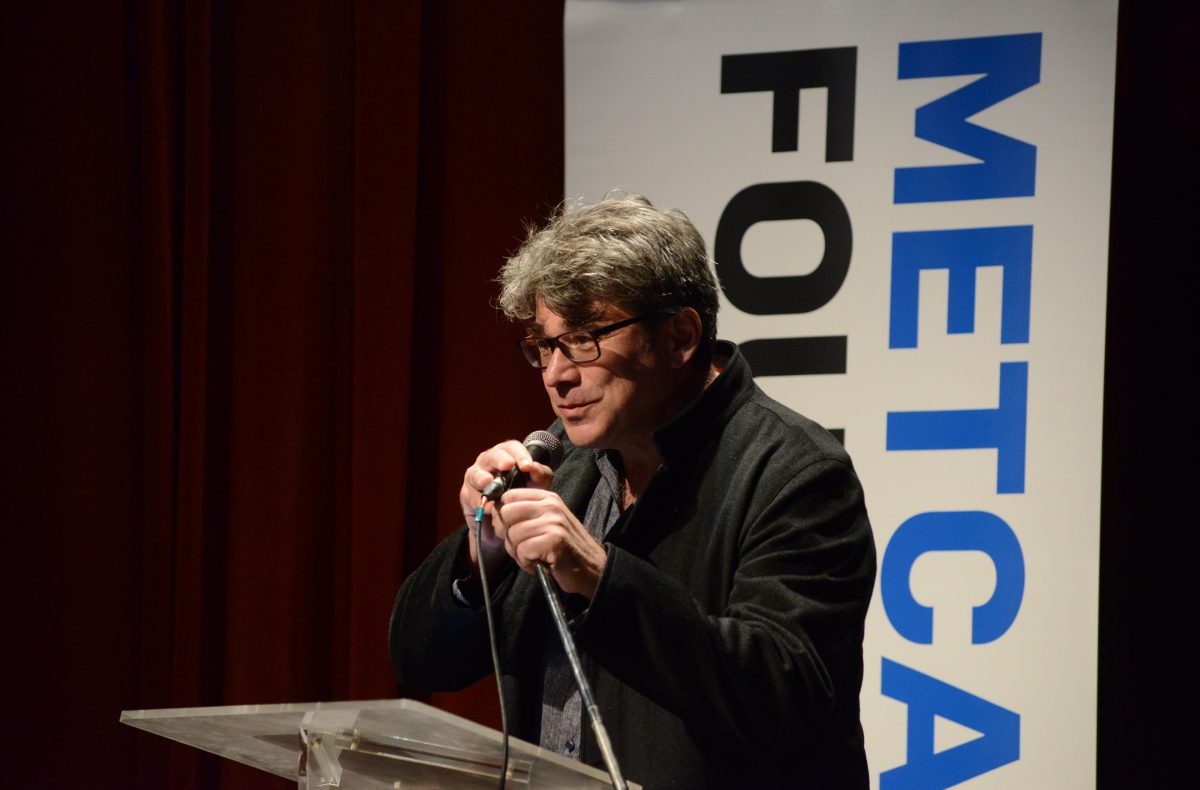
Toronto Dance Theatre’s long time Artistic Director Christopher House revealed that because contemporary dance is inherently “always moving forward”, remounts don’t generate interest. TDT spent three years exploring new possibilities by reimagining their recent repertoire. This involved reinterpreting existing works through various conceptual lenses. He concluded by noting that “repertoire is a privilege” and that it is a “measure of how we and our world have changed.” The project was able to link the past and future of a 52-year-old organization.
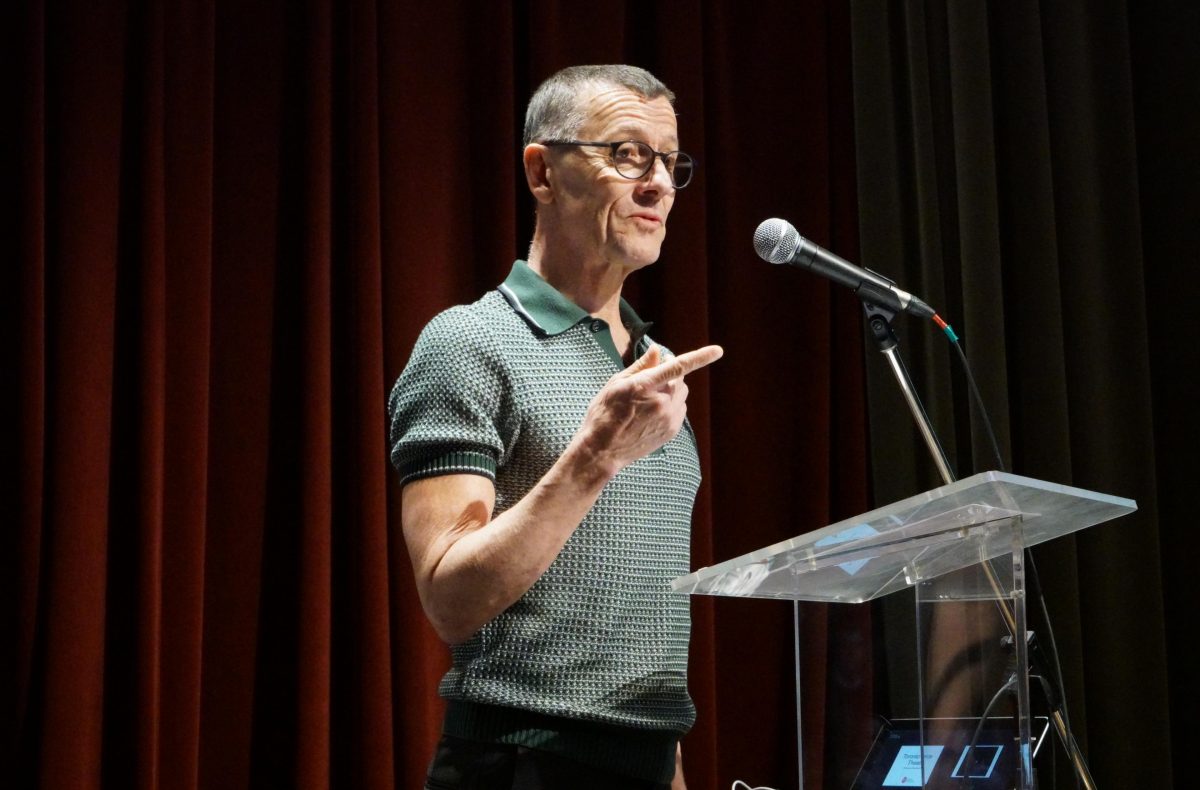
Volcano’s General Manager and Producer Meredith Potter and Artistic Director Ross Manson charted their three-year journey to “put work in front of more audiences around the world”. Their presentation contained five powerful take-aways: a powerful idea grows interest; networks are everything; international interest doesn’t necessarily lead to tours; success can be difficult to manage; and producing at a large scale works better when you don’t do it yourself.
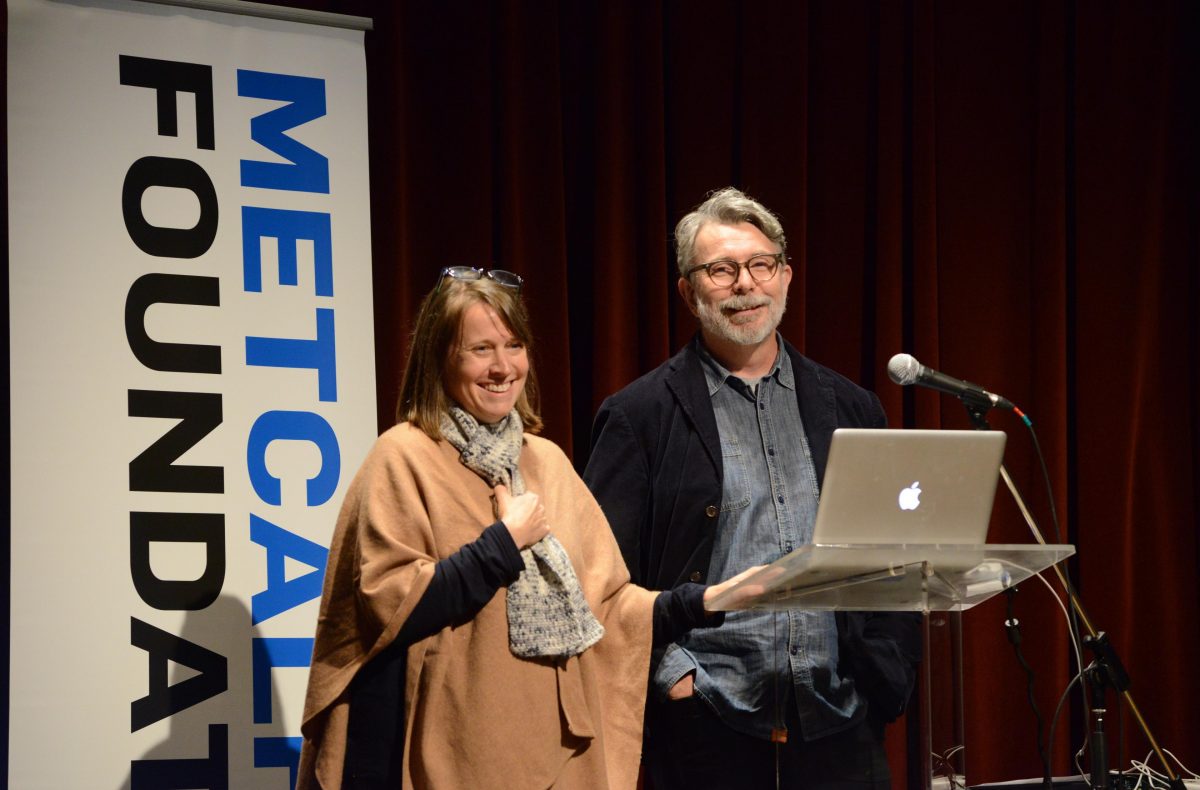
CrSI Support Lead Shannon Liztenberger set the stage for three breakout conversations with the gathered audience in order to discuss how the learning could be translated into their own practices.
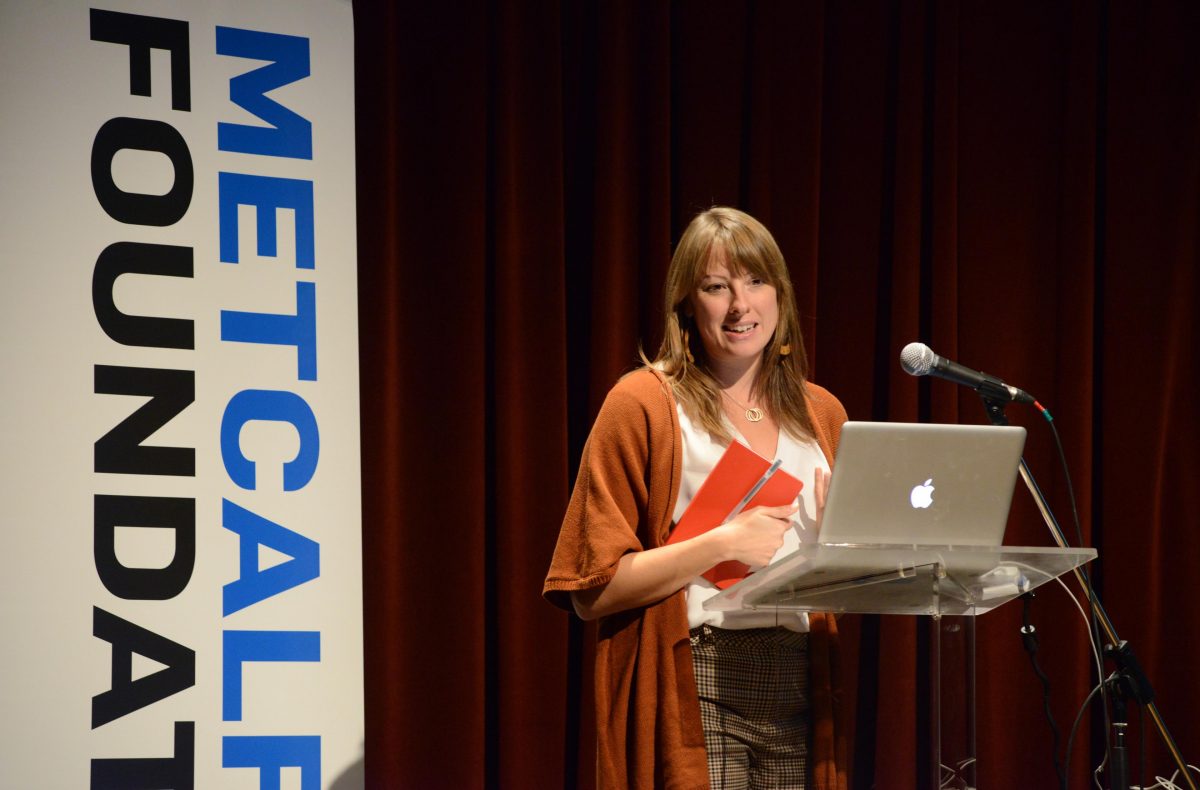
Each of the three breakouts were framed by a provocation and co-facilitated by a team of grantees. The provocations were: How do we break through our perceived ceiling of short and long-term resource development and allocation when making art? How can we create histories in order to create change? What do we need to make unusual work at scale?
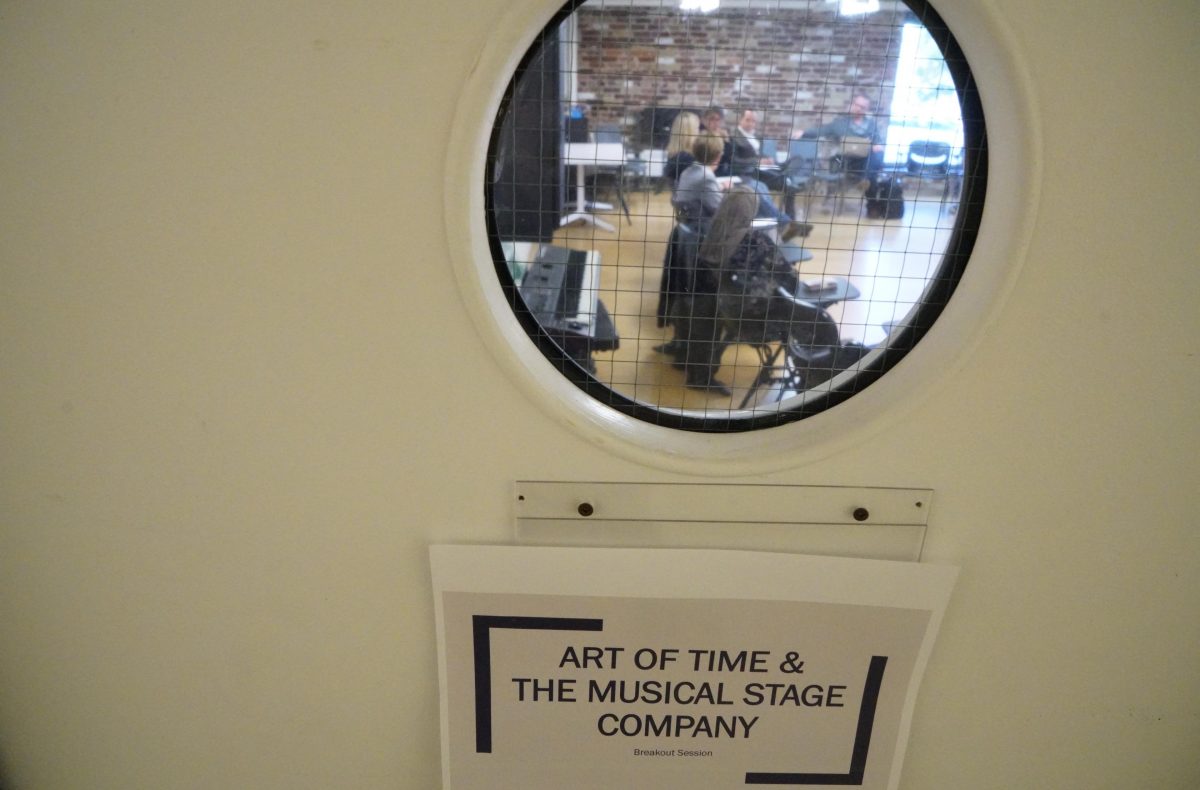
A reception concluded the afternoon’s presentations where lively conversations on the afternoon’s themes were pursued.
